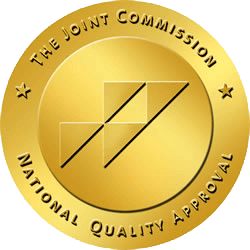Anxiety and depression are not uncommon mental health disorders. Among adolescents and teens, more than 42% of students felt persistent sadness or hopelessness, with about 29% experiencing poor mental health. This included more than 22% of students experiencing suicide ideation, with 10% having attempted suicide. However, there are ways to overcome teen anxiety and depression. Developing healthy coping skills and prioritizing the recovery journey can help clients foster a new lifestyle without feeling shackled by their mental health.
At Destinations for Teens, the staff is there to support all clients through their mental health recovery journeys. This includes creating personalized treatment plans, listening to the client’s needs, and inviting new services into the client’s journey to promote healthy coping skills for long-term success with healing. One unique offering at the facility is a dedicated primary mental health home that is tailored towards teens struggling with mental health, specifically. This allows these teens to engage in therapies and practices that revolve exclusively around mental health rather than both mental health and substance abuse.
Teen Anxiety and Depression
There are many things that can incite anxiety and depression in teens. School, extracurriculars, and family life are just a few reasons why your teen may be struggling with anxiety and/or depression. Each person who struggles with mental health is different, though, so listening to your teen and providing support for them in the most beneficial way is important.
First, it is important for families and their teens to understand the signs and symptoms of the two mental health disorders before taking action in terms of seeking treatment.
Anxiety Symptoms and Signs
General anxiety disorder (GAD) is noted by excessive and unrealistic worry about daily things or activities. This can create excessive nervousness, fear, uncertainty, anxiousness, shyness, and/or discomfort. Based on a study from 2016, as much as 31.9% of teenagers aged 13–18 years have some or all of the following signs and symptoms of GAD:
- Excessive and uncontrollable worry
- Lack of focus and difficulty concentrating
- Fear and avoidance in decision-making
- The persistent belief that the worst outcome will occur
- Feeling more tired more frequently
- Change in eating habits
There are many things that can lead to teens developing anxiety. Among these are family conflicts, relationship struggles, and stress and trauma. Traumatic or sudden events in a young person’s life can greatly affect the way they perceive the world around them. This can incite anxiety.
Depression Symptoms and Signs
Teen depression often consumes the client’s life. Young adults between the ages of 18 and 25 are noticeably susceptible to depressive disorders. Teens may be struggling with peer pressure, academic pressure, relationships, home struggles (like parental job loss or financial struggles), and family tragedy. Depression can then lead to more mental and physical health issues, including making catastrophic and detrimental life choices. The following are symptoms of teen depression to take note of:
- Trouble focusing and concentrating
- Continuous talk of death or suicide
- Feelings of worthlessness and hopelessness
- Drug or alcohol use
- Changes in appearance and/or neglect of hygiene
- Declining in school performance (grade, attendance, etc.) and resistance to improve
- Excessive sleepiness or fatigue
- Change in eating habits
Depression can also lead to teens struggling with their sense of self. This includes losing self-esteem and feeling separated from themselves. They may feel isolated or alone when struggling with depression as well.
Coping Skills for Teen Anxiety and Depression
Mental health disorder recovery and healing is meant to improve one’s whole life, not just certain parts of it. For instance, teens are coping with a lot of transitions in their lives at this time. Some of these include figuring out college or career plans and gaining more responsibility. At least 90% of teens feel these concerns or pressure. The following are different areas of life where teens can improve due to mental health treatment:
- Successfully navigating the complexities of life
- Developing healthy relationships
- Being able to adapt to change
- Utilizing coping skills in a way that improves quality of life
- Tapping into their life’s potential
- Feeding their needs rather than ignoring them
- Developing skills to help them navigate life and different environments/stages of life
It is important to remember that depression and anxiety are not “phases” that your teen is experiencing. These mental health disorders require support, care, treatment, and involvement for productive and progressive recovery. It is important to practice and encourage the practice of healthy coping skills.
Healthy coping skills may look like journaling, taking walks, engaging in creative exercises, and physical exercise. These coping skills help teens express themselves and channel their energy into productive projects. The purpose of coping skills such as these is to create a healthy lifestyle to improve mental, emotional, and physical well-being.
How Does Destinations for Teens Encourage Healthy Coping Skills?
Destinations for Teens encourages healthy coping mechanisms through treatment and therapy services. For instance, there are a number of group, individual, and family therapy options that clients can participate in to find which ones work best for them. Part of the treatment process at Destinations for Teens is making active and productive lifestyle changes.
To introduce clients to healthy coping mechanisms, Destinations for Teens offers numerous holistic therapy services. These include photography therapy, exercise therapy, art therapy, magic therapy, music therapy, mindfulness therapy, and yoga therapy. Holistic care brings a whole-person approach to treatment and reminds clients that their lives do not have to strictly revolve around talk therapy and/or taking medication. Rather, holistic care brings enjoyment and fun into the healing process. These services also introduce clients to healthy coping skills they can use in their free time beyond the walls of Destinations for Teens.
Call Destinations for Teens for Anxiety and Depression Help
Here at Destinations for Teens, we understand that teen anxiety and depression can greatly affect someone’s life. There are ways to overcome these mental health disorders, though, in order to change the trajectory of one’s life for the better. At Destinations for Teens, we introduce clients to a number of holistic therapy services. Some of these include yoga therapy, magic therapy, and art therapy. These services introduce clients to healthy coping skills that involve creativity, productivity, and growth. Channeling energy into healing through fun and exciting activities shows teens that they have the power to change their lives. This invites resilience and forward movement in the healing process. For more information, please call us at (866) 678-8123.


